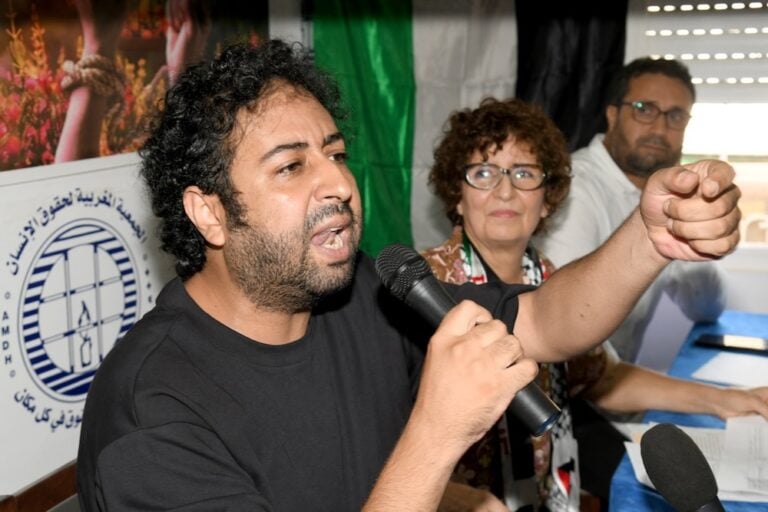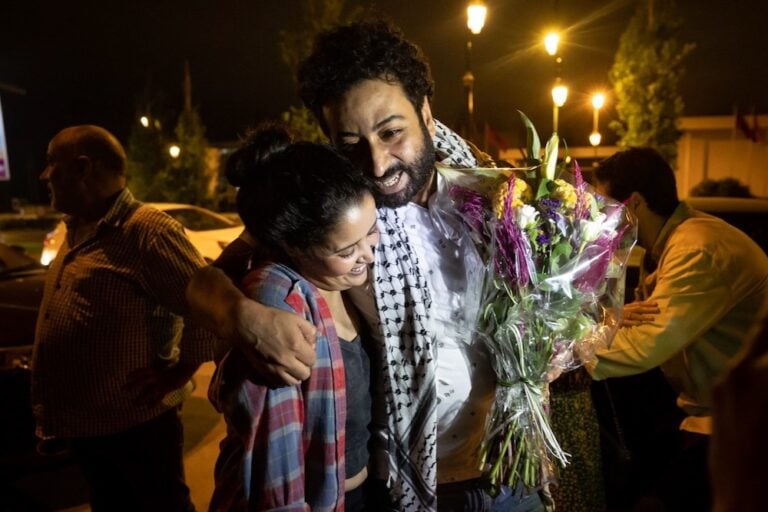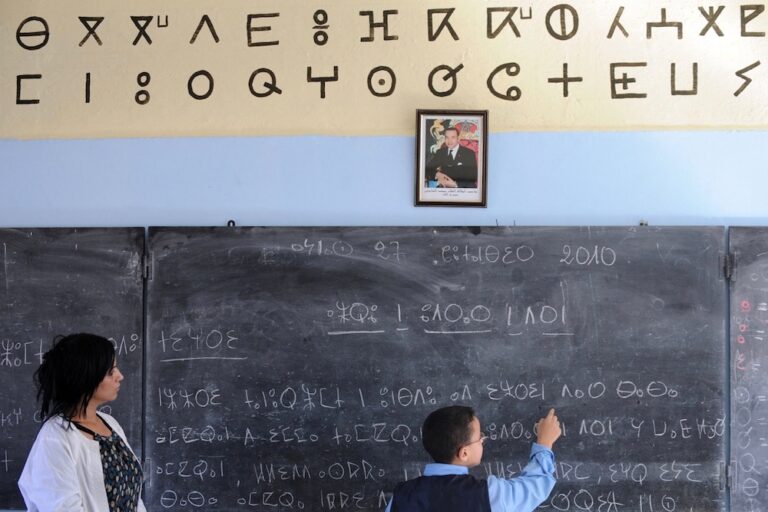(RSF/IFEX) – On 5 January 2004, Mohammed El-Brini, editor of “Al-Ahdath Al-Maghribia”, Morocco’s main Arabic-language national daily, received a letter bomb, made to resemble a new year’s message. He escaped injury when a staff member spotted suspicious-looking wires and took the letter to the police. RSF strongly condemned the attack on El-Brini and urged the […]
(RSF/IFEX) – On 5 January 2004, Mohammed El-Brini, editor of “Al-Ahdath Al-Maghribia”, Morocco’s main Arabic-language national daily, received a letter bomb, made to resemble a new year’s message. He escaped injury when a staff member spotted suspicious-looking wires and took the letter to the police.
RSF strongly condemned the attack on El-Brini and urged the Moroccan authorities to launch a full-scale investigation to find those responsible.
“The person who opened the envelope in the newsroom noticed that there were wires and abnormal aspects to the letter, so we immediately took it to the police,” El-Brini told RSF. “It’s clear to us that Islamist fundamentalist movements are behind the attack. It’s an extension of the 16 May [bomb attacks] in Casablanca, but in another form,” he said. “Police identified the type of explosive in the letter, which appeared to be similar to that used in the bombings,” he added.
“Al-Ahdath Al-Maghribia”, which is close to the Socialist Party, recently received repeated threats via post and e-mail. The paper’s editorial line is hostile to all Islamist movements and parties and it condemned all such forces following the Casablanca bombings.
RSF also notes that letter bombs were sent to four Kuwaiti journalists working for the country’s main newspapers in early December 2003 (see IFEX alert of 11 December 2003). An investigation is underway into the attacks, which appear to have been intended to intimidate the journalists.


